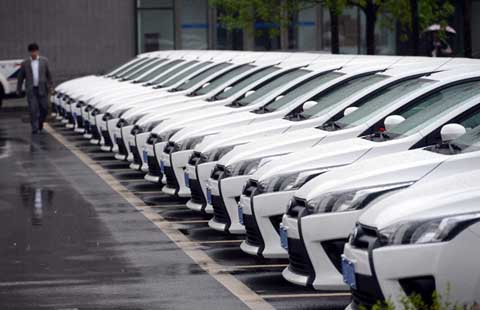'Challenge lies in meeting buyers' rising demand'
By Andrew Moody (China Daily) Updated: 2014-05-19 07:33Heimowitz says it will be perhaps more of a challenge for the concept of the Chinese Dream to have as much resonance as staging an international event as the Olympics but he does not deny its potential importance.
"I don't think Western companies are likely to respond to a policy speech by Chinese President Xi Jinping in quite the same way. His dream is all encompassing, however. It covers a range of different aspects and I do believe that across the generations - young, middle-aged and older members of society - people see this national vision as part of an overall dream."
 |
 |
"I think acknowledging a national aspiration and a dream is a very positive thing but on its own it is not enough. You have to have the quality and service to back it up. The next generation of companies have got to figure out how they connect with it and how by doing so they resonate with the purchasing power of consumers."
Heimowitz says whatever the aspirations of companies are in China, many of the business challenges will remain the same.
"Companies make mistakes coming to China all the time. What I find with Western companies is that they spend a lot of time getting their strategy right, and I think about 80 percent of the time they succeed, but then they fail on the implementation.
"With Chinese companies, it is the reverse. They actually get the implementation right which actually often makes up for failings in their strategy."
Heimowitz believes Chinese companies will need more than implementation prowess to establish their brands globally, which is part of the Chinese Dream of projecting national power.
"Chinese companies going overseas have stumbled, much the same way as Western companies have in China over the years. But each time they have stumbled they have learned something, and they get better and better."
- Negative list in need of some positive tweaks
- Govt mulling tax cut for imported electric cars
- China's forex reserve to hit $4t: report
- Securities firms can tap private capital market
- Home prices drop in more Chinese cities
- Playing a different tune
- Creative juices flow with the Thames in London
- Concerns grow as real estate cool-down continues















